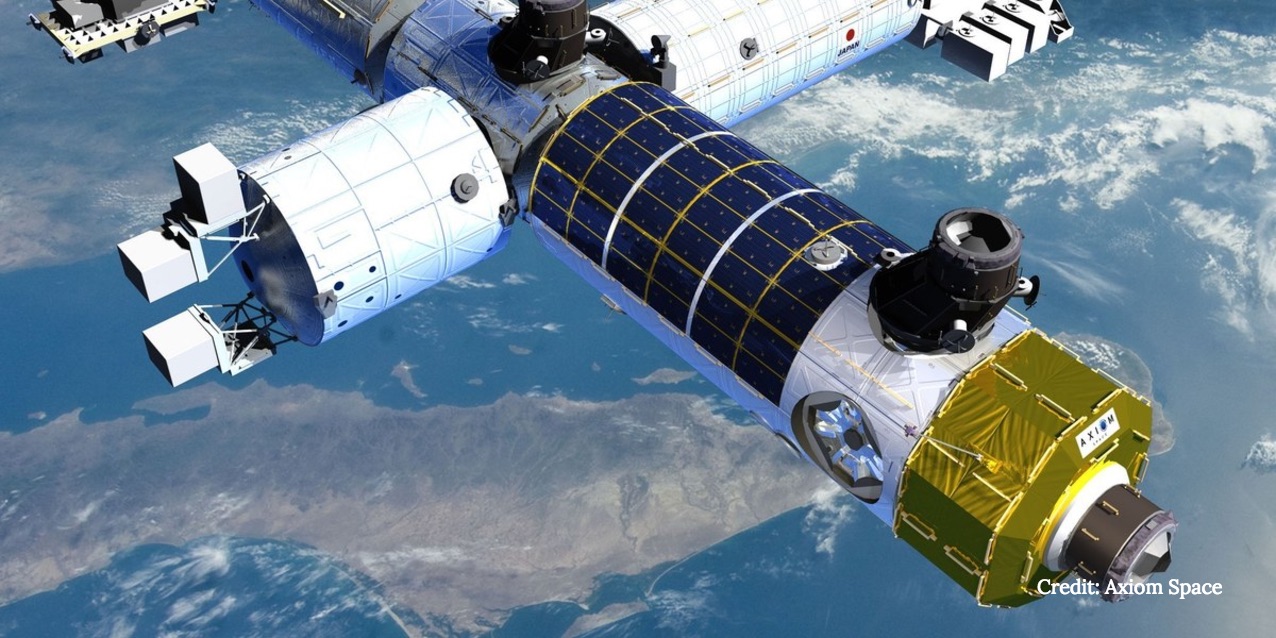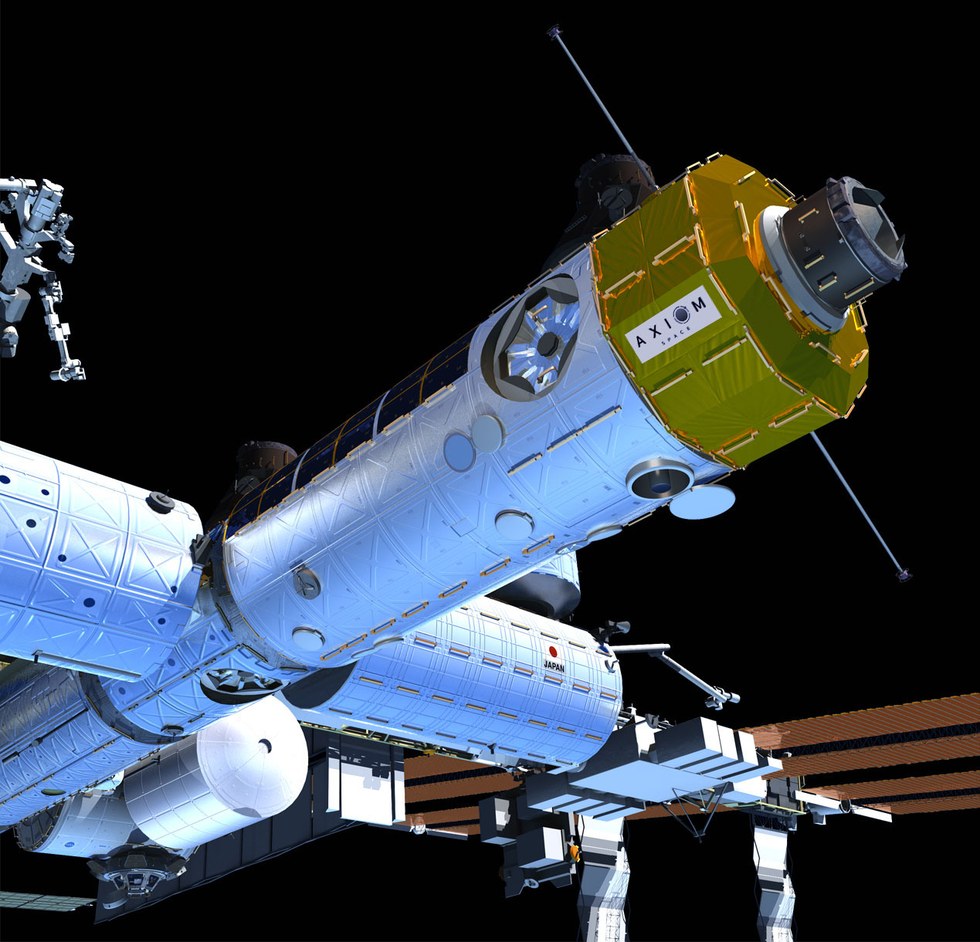A Private Space Station Might Be Born From the ISS

What's going to happen to the International Space Station (ISS) after it is retired? While international agreements work out how long the station will last after its planned budget end in 2024, one startup private company has a vision that could build a new station on pieces of the old one.
Called Axiom Space, its chief executive is Michael Suffredini, the former NASA program manager of the ISS. The company has ambitious plans to send up a module in 2020 to attach to the space station, then to remove that module when the space station program ends. Depending on what the partners want, Axiom could even remove pieces of the ISS along with its own module.
Amir Blachman, Axiom's vice-president of strategic development, suggests that such pieces could be salvaged and put to new use, including a storage module, the Canadarm (a robotic arm used for spacewalks and snagging robotic spacecraft) and even the Cupola, a 360-degree window that faces Earth.
"It's more interesting technology," he told Seeker.
Watch Live Video of Earth From the International Space Station
But, he emphasized, this is all early-stage speculation. Axiom right now is focusing on getting its module launched on time. If all goes to plan, Module 1 will have a capacity for seven astronauts and will be fully self-sufficient, including such items as a galley, sleeping quarters, experiment racks and life support systems. It would attach to Node 2's docking adapter, but also come equipped with its own docking adapters for spacecraft to dock (if feasible, considering sightlines, loads and other considerations).

NASA has completed a first-phase study with Axiom and is now doing a deeper study that may be completed in the next few months, Blachman said. The module would launch on a heavy-lift cargo rocket and would have an advantage over most ISS modules: most of the equipment is inside the shell, removing the need for spacewalks. It also would have more miniaturized computers able to do more, simply because this module is newer than the rest of the ISS.
Get the Space.com Newsletter
Breaking space news, the latest updates on rocket launches, skywatching events and more!
"As a private company, we can do other things like accepting tourists more frequently, or doing advertising sponsorships," Blachman said.
But those are future streams of revenue. In the near term, the company is focused on training astronauts from other countries (whose nations would pay) as well as doing additive or 3-D manufacturing in space under an agreement with the company Made In Space, which already does that work in other parts of the ISS.
RELATED: Russia Will Spin-Off ISS Parts for New Space Station
Startup funding came from a seed round in 2016, when Axiom was first founded. The $3 million round was led by Kam Ghaffarian, the chief executive of Stinger Ghaffarian Technologies (SGT) — a company that trains NASA astronauts and does ISS mission preparation.
Axiom is now doing a Series A round that they plan to close early this year. And in future years, Blachman noted, Axiom has plans to spread further into the solar system.
"What we're talking about is the true commercialization and industrialization of low Earth orbit," he said.
Step one is manufacturing stuff in low Earth orbit, while step two would be to put a module around say, the moon to test life support for deep space exploration systems. According to Blachman, the vision is to go where the customers need — even as far as Mars, if that's where the demand lies in future decades.
WATCH VIDEO: Who Owns the International Space Station?
Originally published on Seeker.
Join our Space Forums to keep talking space on the latest missions, night sky and more! And if you have a news tip, correction or comment, let us know at: community@space.com.

Elizabeth Howell (she/her), Ph.D., was a staff writer in the spaceflight channel between 2022 and 2024 specializing in Canadian space news. She was contributing writer for Space.com for 10 years from 2012 to 2024. Elizabeth's reporting includes multiple exclusives with the White House, leading world coverage about a lost-and-found space tomato on the International Space Station, witnessing five human spaceflight launches on two continents, flying parabolic, working inside a spacesuit, and participating in a simulated Mars mission. Her latest book, "Why Am I Taller?" (ECW Press, 2022) is co-written with astronaut Dave Williams.









